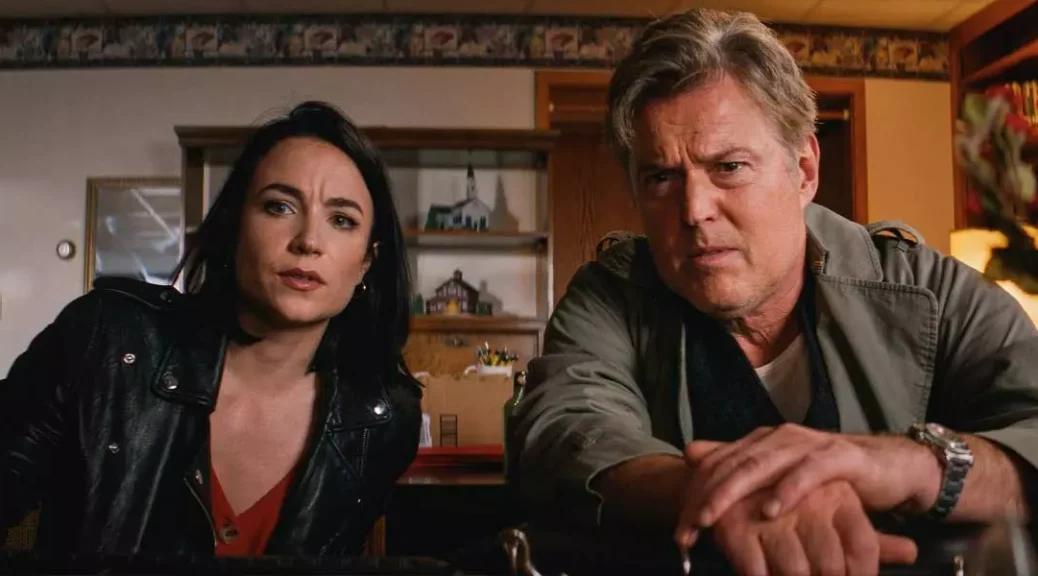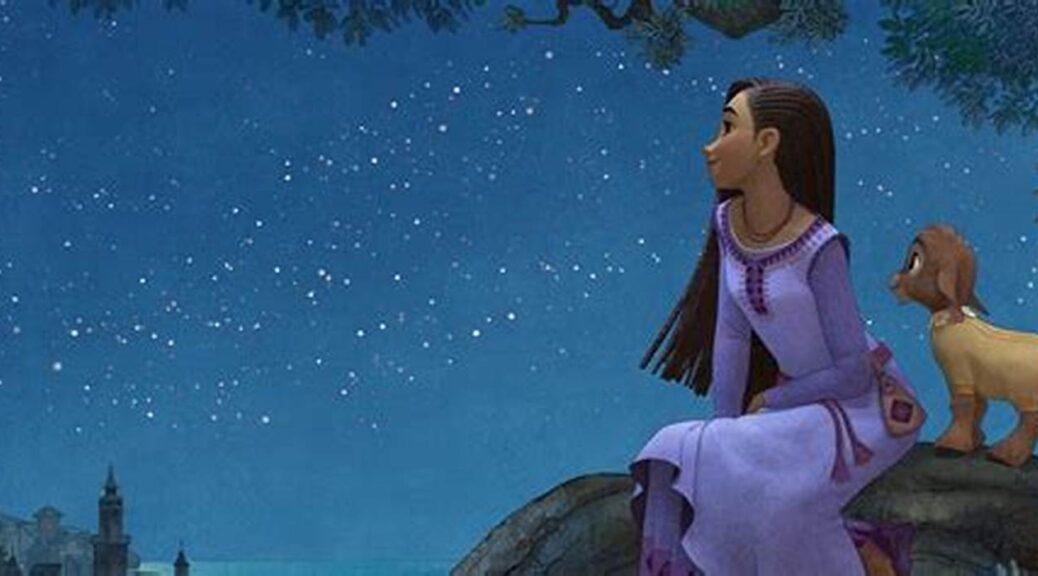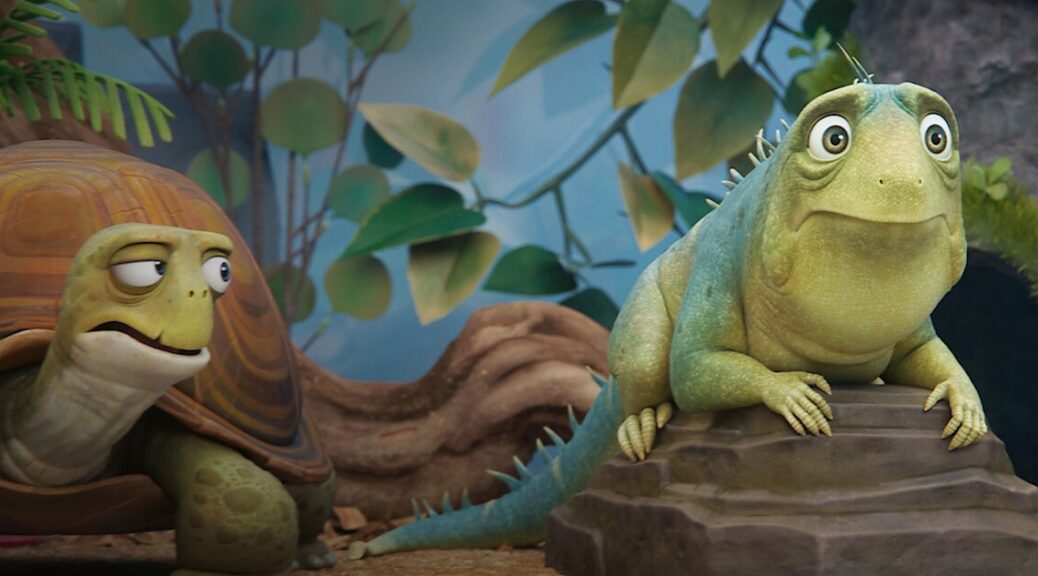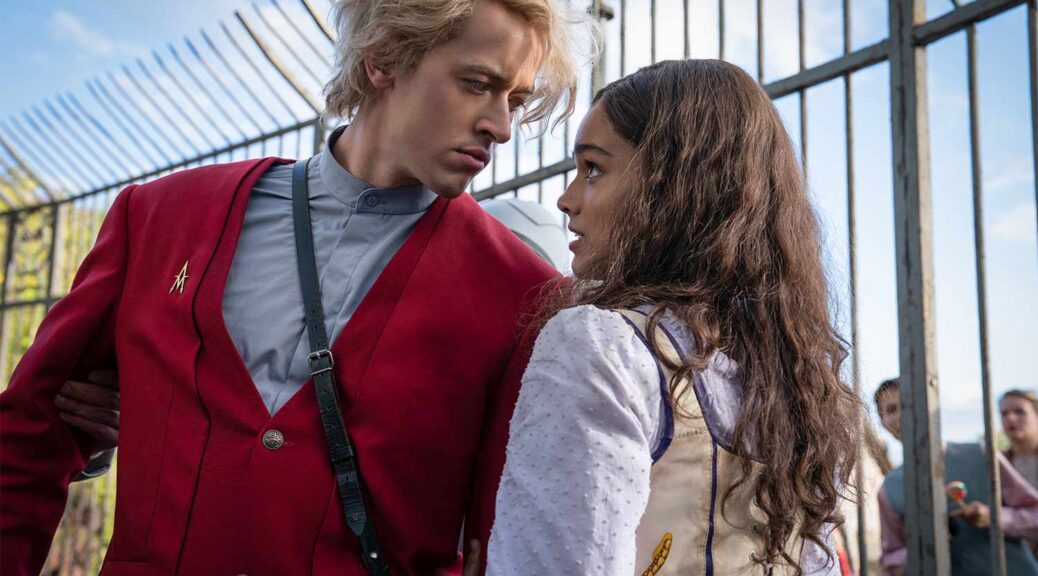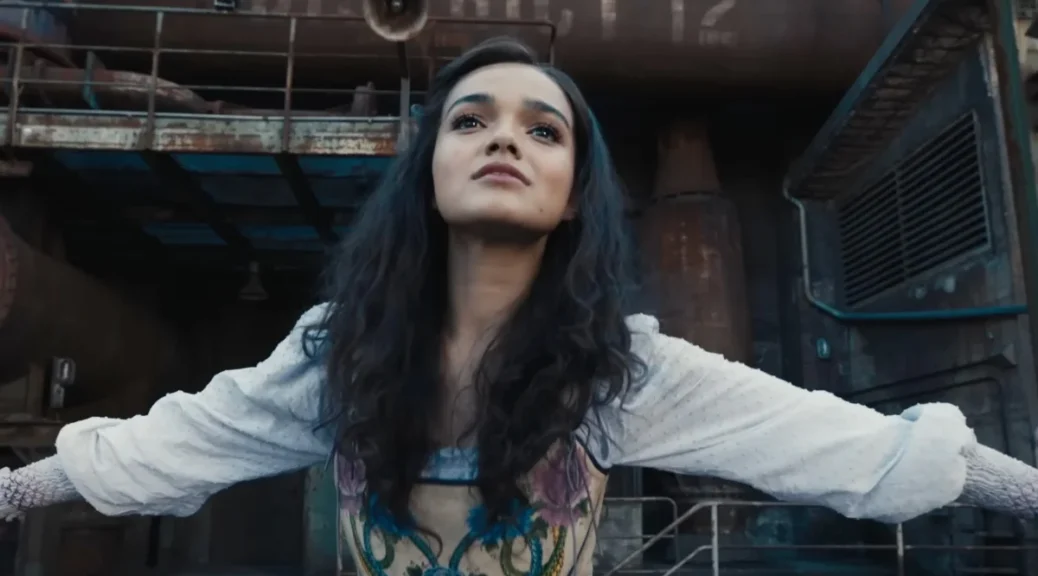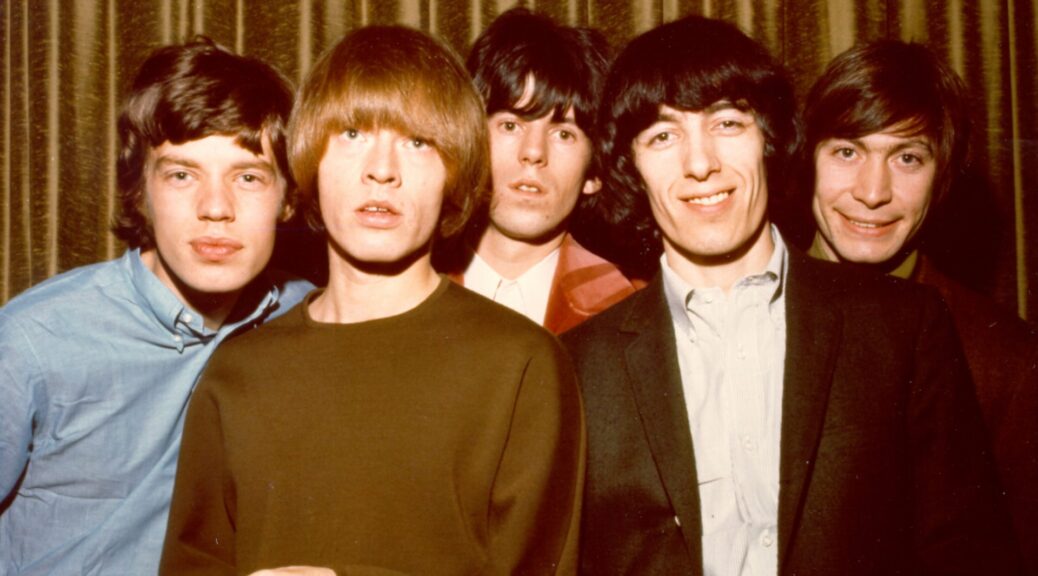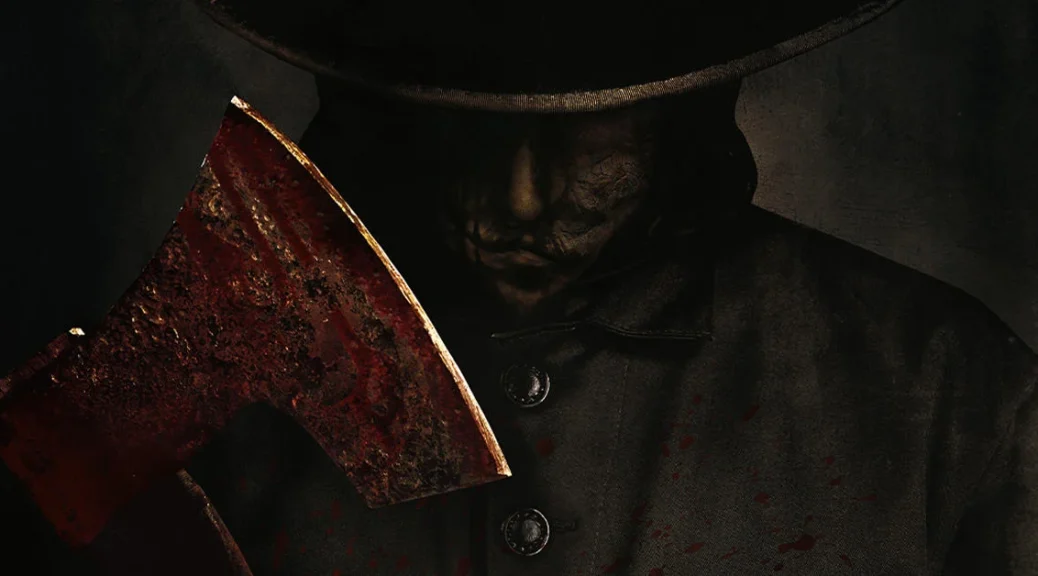Hayseed
by Rachel Willis
An insurance investigator is pulled into a who-done-it murder mystery in writer/director Travis Burgess’s film, Hayseed.
Bored from the moment he enters the small town of Emmaus, Michigan, investigator Leo Hobbins (Bill Sage) becomes intrigued when Darlene (Ismenia Mendes) tells him the esteemed reverend’s death wasn’t an accident, nor was it suicide (Hobbins’s reason for investigating). It was murder.
From the get-go, we’re introduced to a colorful cast of characters, each with their own stories and ideas about what happened. It’s a small-town, so gossip runs rampant – some of it true, most of it false. Several characters feel like people you know. Others are awfully quirky, but it works for this comedic mystery.
Hobbins might draw comparison to some of the other big-screen detectives we’ve seen over the last several years, but Sage creates his own character – one who is charismatic in his own droll way. Though Darlene is a member of the community, her status is that of an outcast. Several question her relationship to the reverend and her influence on him. Together, our dynamic duo leads us deeper into the mystery surrounding the reverend’s untimely end.
There are several moments when you might feel like you know where the mystery is headed, but it doesn’t harm the film. Many pieces fall into place as we prod further alongside Hobbins. There aren’t any obvious red herrings, nor are any threads untied. This is a tidy package, one wrapped by a writer who knows how to draw you in and lets you attempt the solve the mystery.
While the conclusions might not be entirely obvious, there is enough on the table to leave you satisfied by what comes of the sleuthing.
With a larger cast, some characters are less well-developed than others, but no one feels underdeveloped. These are all people who have a place, and it’s easy to differentiate one from another – no small feat when working with so many characters. While our two leads are the focus of the show, there are others who stand-out, particularly Joyce Metts (Kathryn Morris) with her bitchy gossip and snide comments.
Overall, this is a film that works well. While it might be overlooked in comparison to other, recent murder mysteries, it’s not fair to draw too many comparisons. This is a movie that deserves its own consideration, and you’ll have fun if you let yourself be draw into the mystery.
